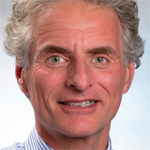All three doctors note that there are professional plusses that may not be readily available to those in “civilized” settings.
Perks of the Job
One of the perks comes from the patients themselves. There is a feeling among all three doctors interviewed here that the patients are very excited to see them and are grateful for the ability to have a doctor face to face in their “home.” “It is amazing how happy they are to see us,” says Dr. Winkler. “Some are patients I saw when I was still in an urban clinic. Now that I am coming to see them instead of the other way around, they think that is wonderful. There is a lot of gratification in that.”
Some have expressed concerns that rural communities may see the physicians as outsiders who aren’t connected to the town. The experience has been the opposite.
“The perception was that you had to come in, buy a home, and raise your kids there before the area would adopt you,” says Dr. Jackson. “As long as they see a long-term commitment, dedication, and sincerity in staying with them, you are accepted.”
One of the consistent themes across both articles in this series is the professional satisfaction that may not be as readily available any more outside of the rural setting. The ability to practice medicine with fewer concerns about the business side of medicine is an often-heard advantage. “I left a multispecialty group after 20 years because I felt I got to focus more on the practice of medicine in the country,” says Dr. Winkler. “I think I ordered what was needed for the patient, but there was still a voice in the back of my head wondering if I wanted tests because the patient needed them or because it impacted on my bottom line. The little voice has stayed quiet since I left for rural areas.”
She also points out that sometimes a physician can feel neglected in an urban setting. They can think that their voices are not heard. “When you go to a smaller community, our voice is a vital part of the healthcare system,” she continued. “We are asked to give advice, and it is very satisfying to know you are needed.”
Dr. Goldberg agrees. “My wife and I flew up from Houston and got off our small plane to –20-degree temperatures,” he says. “We have been here 30 years because the practice is wonderful, I can put my hard-working and wonderful patients first, and give them high-quality care. All of that while still being able to have a great family life. As Neil Simon noted, on the west coast you have a lifestyle, while in the Midwest you have a life. ”

